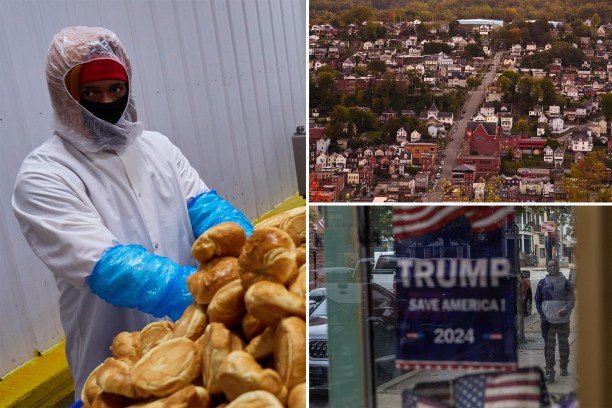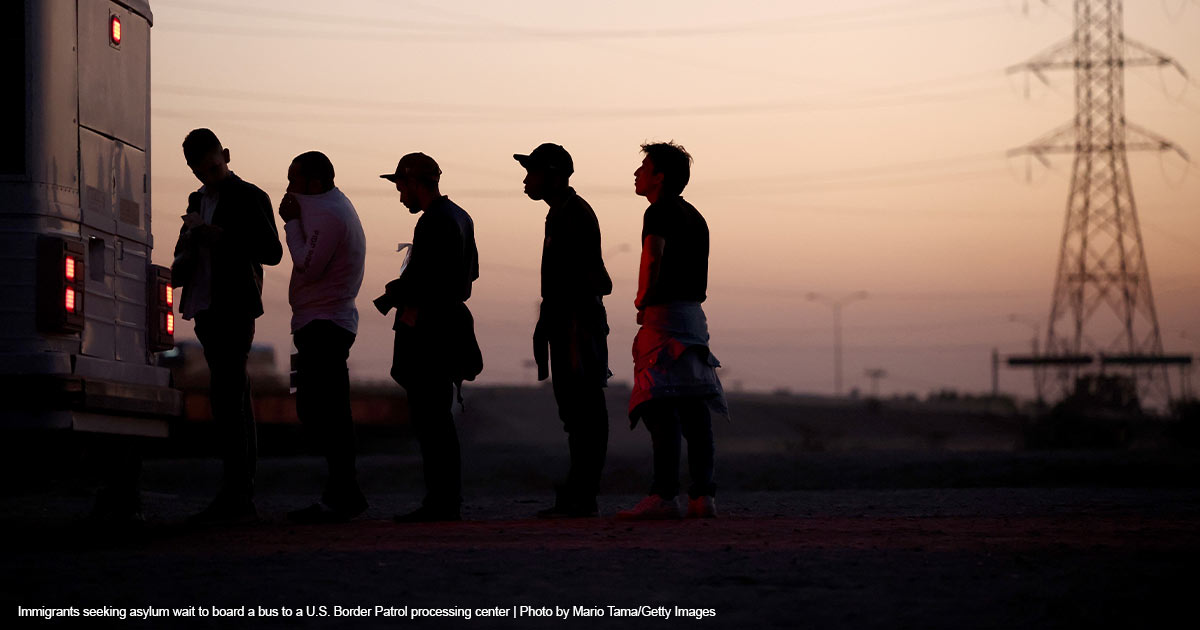How 2,000 Haitian Migrants Changed Rust Belt Town of Charleroi, Pennsylvania; Residents Fear Small Penn. Town Won’t ‘Come Back from This’ After Biden-Harris Import Thousands of Haitian Immigrants
How 2,000 Haitian migrants changed Rust Belt town of Charleroi, Pennsylvania:
Charleroi, Pennsylvania, is a deeply troubled place. The former steel town, built along a stretch of the Monongahela River, south of Pittsburgh, has experienced the typical Rust Belt rise and fall. The industrial economy, which had turned it into something resembling a company town, hollowed out after the Second World War. Some residents fled; others succumbed to vices. The steel mills disappeared. Two drug abuse treatment centers have since opened their doors.
The town’s population had steadily declined since the middle of the 20th century, with the most recent Census reporting slightly more than 4,000 residents.
Then, suddenly, things changed. Local officials estimate that approximately 2,000 predominantly Haitian migrants have moved in.
The town’s Belgium Club and Slovak Club are mostly quiet nowadays, while the Haitians and other recent immigrants have quickly established their presence, even dominance, in a dilapidated corridor downtown.
This change — the replacement of the old ethnics with the new ethnics — is an archetypal American story. And, as in the past, it has caused anxieties and, at times, conflict.
The municipal government has felt the strain. The town, already struggling with high rates of poverty and unemployment, has been forced to assimilate thousands of new arrivals.
The schools now crowd with new Haitian pupils, and have had to hire translators and English teachers. Some of the old pipes downtown have started releasing the smell of sewage.
And, according to a town councilman, there is a growing sense of trepidation about the alarming number of car crashes, with some vehicles reportedly slamming into buildings.
Among the city’s old guard, frustrations are starting to boil over. Instead of being used to revitalize these communities, these residents argue, resources get redirected to the new arrivals, who undercut wages, drive rents up, and, so far, have failed to assimilate. Worst of all, these residents say, they had no choice — there was never a vote on the question of migration; it simply materialized. —>READ MORE HERE
Residents Fear Small Penn. Town Won’t ‘Come Back from This’ after Biden-Harris Import Thousands of Haitian Immigrants:
The small Ohio municipality of Springfield has made national headlines over the past weeks, thanks to tens of thousands of Haitian immigrants being surreptitiously dumped into the city by the Biden-Harris administration over the past three years. But Springfield isn’t the only “heartland U.S.A.” town suffering after being inundated with immigrants. This week, the America 2100 non-profit organization launched its own on-the-ground investigation in Charleroi, Pennsylvania, to expose how the rural town’s 2,000% increase in Haitian immigrants has impacted American residents.
Last week, America 2100 shared reports from locals and residents chronicling a steep increase in traffic accidents and a rise in violent crime, including Haitians attempting carjackings and mugging Americans outside liquor stores. The non-profit group noted, “It isn’t just Springfield. It’s happening everywhere. In Charleroi, Pennsylvania — a low-income town of just 4,000 — the immigrant population has increased by 2,000% over the past two years. And it’s almost all Haitians.”
In an interview with America 2100, Charleroi councilman Larry Celaschi said, “I wish I could come face to face for 60 seconds … with whoever was behind all this and bringing the immigrants into Charleroi…” He asked, “Where the hell’s the money that should be coming to Charleroi, okay? Why was it all dumped on us, and we’re not being funded with anything. Okay, and again, we can’t even make ends meet with our budget, and so now how — where are we gonna get this extra revenue to pay for them?” Celaschi concluded, “And so now we’ve got to do all these things to accommodate the immigrants. That’s bull****.”
On Monday, America 2100 visited Charleroi, saying, “The media won’t tell their story — so we will.” One resident who was “born and raised” in Charleroi told America 2100 Senior Adviser Nate Hochman that the 2,000 Haitian immigrants have clogged up the small town’s sewage system. “You can smell the raw sewage,” he said. “These 120-year-old pipes can’t handle all the sewage that’s getting pumped into them … from all the people that came in.”
Another resident also complained about the “absolutely disgusting” lack of hygiene among the immigrants and how it has impacted the town. “I feel bad for a lot of these people,” said Andrew, who does housing repairs. “And then some of these houses you go into … they live like they still live in a clay building in Port-au-Prince and they just want to keep it how it was,” he continued. Andrew explained that the houses the Haitian immigrants live in are “disgusting,” recounting that he once spent three days simply scrubbing a kitchen after Haitians vacated a house, before moving on to cleaning the rest of the house. He noted the massive increase in immigrants over the past two years, saying, “The agencies, they just keep bringing these people in and bringing people in and bringing people in.”
“This is one of the most immediately obvious aspects of the immigration crisis in Charleroi,” Hochman noted. “The big businesses are buying up homes in town and packing them with as many as 15-20 Haitians per property. It’s essentially converting the entire town into a gigantic workers’ barracks.”
Local parents reported that schools are being overwhelmed and forced to divert funds to hire multiple interpreters. “They’re having a huge problem, I think, with trying to teach,” one mom said. “There were 45 Haitians that started kindergarten this year,” she added. Another parent explained, “A kindergarten class is probably no more than 60 at most, at most.” Hochman asked, “So like the majority of the kindergarten is Haitian now? In what? Two years?” The parents nodded and replied, “Yeah.” One of the parents noted, “One of the things … about the not speaking English … middle school grades where parents are having a problem because their kids can’t advance because the teachers are having to compensate for the kids who can’t speak English.” —>READ MORE HERE








Comments are closed.